Roving with the Arts
Roving with the Arts
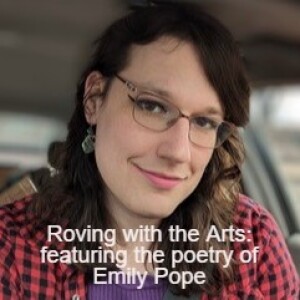


Monday Feb 27, 2023
Roving With The Arts: with Mick Hesse Featuring Emily Pope
Monday Feb 27, 2023
Monday Feb 27, 2023
Poet Emily Pope joins Mick Hesse on this Roving With The Arts.
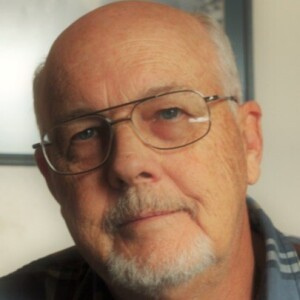


Friday Feb 03, 2023
Roving With Arts with Mick Hesse: Poet Dennis Mathis
Friday Feb 03, 2023
Friday Feb 03, 2023
Dennis Mathis has lived in Farmington since 1977. He and his wife Nancy have been married for 52 years and have four grown, married children and three grandchildren. He has always had a lively interest in literature and writing.
“Romantic Words and Music” features poetry narrated by Dennis Mathis and music by Barber, Mahler, Elgar, Barry, and Vaughn Williams. Mr. Mathis has chosen music as a backdrop to his creative thoughts and poetry.



Wednesday Nov 16, 2022
Write On Four Corners: Author Miriam Sagan
Wednesday Nov 16, 2022
Wednesday Nov 16, 2022
Miriam Sagan is the author of over 30 books of poetry, fiction, and memoir. She is a two-time winner of the New Mexico/Arizona Book Awards, a recipient of the City of Santa Fe Mayor's Award for Excellence in the Arts, and a New Mexico Literary Arts Gratitude Award recipient. She also founded and directed the creative writing program at Santa Fe Community College until her retirement. On this week's episode of Write-On! Four Corners, Sagan will discuss her newest book, a flash memoir, entitled "Stash"with new host DelSheree Gladden!
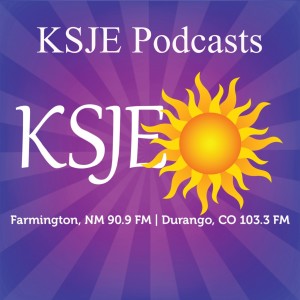


Thursday Jun 23, 2022
Roving With The Arts with Mick Hesse; Poet Samuel Galbraith
Thursday Jun 23, 2022
Thursday Jun 23, 2022
Samuel Galbraith entwines his poetry with selected pieces from Bach’s 15 Two-Part Inventions. Samuel chose various instruments to enhance his readings of some of his recent poetry.



Tuesday Jun 21, 2022
Roving With The Arts with Mick Hesse.
Tuesday Jun 21, 2022
Tuesday Jun 21, 2022
Tune in to relax with your host Mick Hesse as he plays a wide range of early classical music. This weeks episode also includes Third Coast Percussion.



Friday Mar 25, 2022
Friday Mar 25, 2022
SHOSTAKOVICH Symphony No 13 in B flat minor op 113 “Babi Yar”,written in memory of the over 33,000 Jews murdered in Babi Yar, Ukraine in 1941. Shostakovich set 5 poems by Yevgeny Aleksandrovich Gangnus to music in 5 movements. Valery Gergiev conducts the Mariinsky Theatre Orchestra



Friday Mar 25, 2022
Roving with the Arts: “Hope, not Hate part 2” Dedicated to Jozef Koprinski
Friday Mar 25, 2022
Friday Mar 25, 2022
Dedicated to Jozef Koprinski
“Hope, not Hate part 2” is the first program in a series of transitional music and composers who survived the death camps of Nazi Germany and Poland after WW2
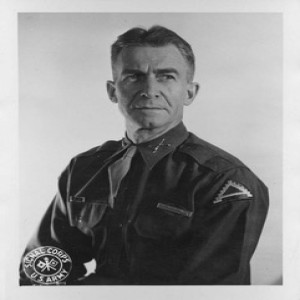


Tuesday Dec 14, 2021
Tuesday Dec 14, 2021
Col. Lilly was born in North Carolina and graduated from the University of North Carolina at Chapel Hill in 1915. In 1917, he received a commission in the regular Army. In 1941 he was sent to Manila in the Philippines to serve in the U.S. Army's Philippine Division. He became the commander of the 57th Philippine Scout Regiment. The unit served on Bataan during the Japanese invasion. He became a P.O.W. in April 1942 when the Americans surrendered to the Japanese. For the next 40 months he was in various Japanese P.O.W. camps. To keep his sanity, he maintained a diary in tiny notebooks. In addition to the diary he wrote down poems, songs, recipes, rules for Bridge and everything he could remember.
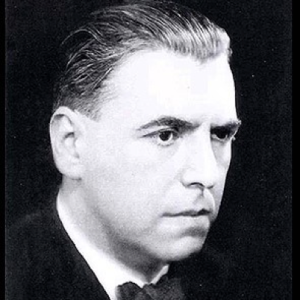


Tuesday Nov 23, 2021
Roving with the Arts: “Hope Not Hate” #17 Dedicated to Erwin Schulhoff
Tuesday Nov 23, 2021
Tuesday Nov 23, 2021
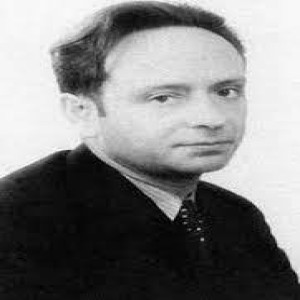


Tuesday Nov 09, 2021
Roving with the Arts: “Hope, Not Hate” #16 dedicated to Victor Ullmann
Tuesday Nov 09, 2021
Tuesday Nov 09, 2021
On 8 September 1942 Ullmann was deported to the Theresienstadt concentration camp. The particular nature of the camp at Theresienstadt enabled Ullmann to remain active musically: he was a piano accompanist, organized concerts ("Collegium musicum", "Studio for New Music"), wrote critiques of musical events, and composed. He wrote: "By no means did we sit weeping on the banks of the waters of Babylon. Our endeavor with respect to arts was commensurate with our will to live."
On 16 October 1944 he was deported to the camp at Auschwitz-Birkenau, where on 18 October 1944 he was killed in the gas chambers.
One writer has described Ullmann's milieu in these terms: "Like such other assimilated German-speaking Czech Jews as Kafka and Mahler, Ullmann lived a life of multiple estrangements, cut off from Czech nationalism, German anti-Semitism and Jewish orthodoxy”.